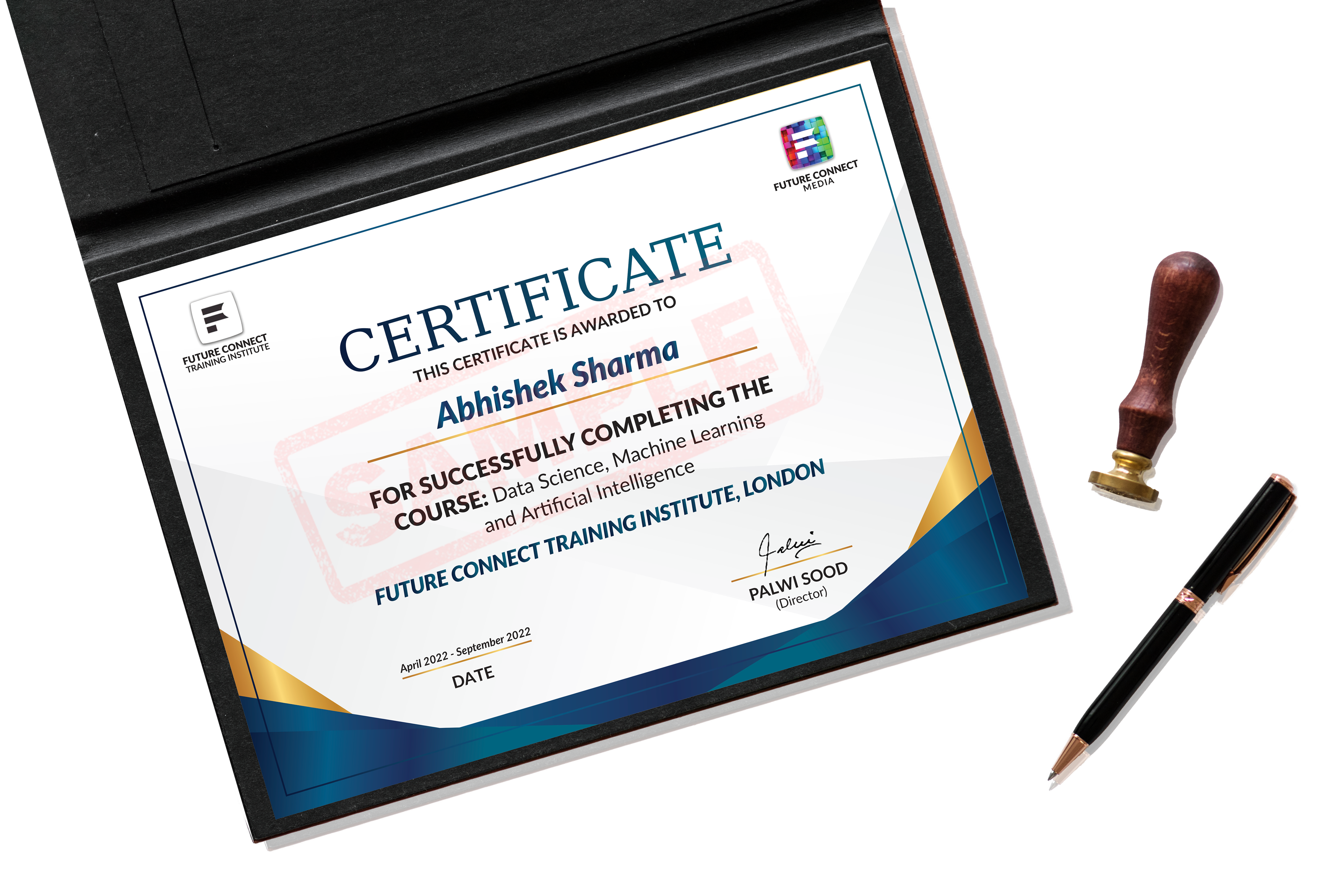Course Includes:
- Mode: Online Based
- Duration: 12 - 20 Weeks
-
Sessions: 50
- Language: English
- Certificate: Yes


Our Data Science course is designed with the jobs available in the IT sector in mind, and we require our learners to work with real data. These courses provide you with a thorough understanding of the IT industry and teach you how to think like a developer.
This course also includes Machine learning and AI that equip students with the skills necessary to complete activities that go above and beyond those listed in job descriptions, which increases their chances of employability. Depending on the course type they have taken, once our learners have successfully completed one of these courses, they can work on any future tools that may be released that are similar.
This data science and machine learning certification gives learners a thorough understanding of key subjects like Mathematics & Statistics, SQL, Python, and Machine Learning. Mathematical ideas that are crucial to data analysis will be taught to students, including probability, statistics, and linear algebra. Additionally, they will learn SQL, a programming language that is essential for managing and modifying databases and for the retrieval and storage of data.
The versatile programming language Python, which is widely used in data science training, will also be taught to the learners. The last thing that you will learn is Machine Learning, a subfield of Artificial Intelligence (AI) that allows computers to learn from data and get better over time, which is essential in predictive modelling and pattern recognition. The overall goal of this course is to give students the information and abilities needed to thrive in the constantly expanding profession of data science.
This course is suitable for
